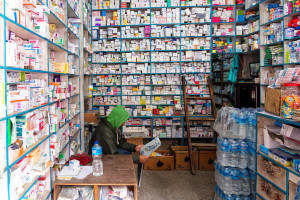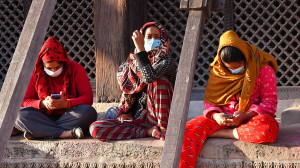Miscellaneous
Nepalis in Scotland campaign against ‘Yes’
Three days before the Scottish referendum for independence from the United Kingdom, Nepalis residing in Scotland are keenly watching the developments.
Navin Pokharel
Worried about possible adverse effects of the outcome of the vote taking place on Thursday, September 18, they do not seem to favour Scotland separating from the rest of the UK.
Bhola Khanal, who has been living in Scotland for 15 years and who is a founder of Nepal Scotland Association, claimed that almost 90 percent Nepalis living in the northern part of the UK are against independence.
“We have initiated a campaign of sorts among Nepalis and the Asian community here that Scotland should remain a part of the UK,” said Khanal. “We stand in favour of the ‘No’ vote against Scottish independence considering the possibility of tax increment,
huge cuts in education and health benefits, drop in wages and confusion over immigration laws.” An estimated 5,000 Nepalis live in Scotland. Nearly 2,000 of them are believed to be eligible to vote.
Although the Scottish National Party has been urging the immigrants to vote for independence promising them equal status in independent Scotland, Khanal said most Nepalis favour “better together” pro-union campaign.
Anal Gautam, another Nepali living in Scotland for eight years, is an Election Presiding Officer for the upcoming referendum. He has been openly campaigning against independence for the Scots.
“Four of us campaigned for the No camp today,” Gautam told the Post.
“We are not convinced of a favourable Scot policy on immigrants. The possible impact on pound sterling exchange rates and uncertainty surrounding education and health benefits post-independence and Scotland’s position in the European Union concern us.” Gautam supports more powers for Scotland, something that Britain’s main political parties have promised, instead of separation. He said independence supporters were trying to lure voters with unreal promises of free education, free child care, free bus passes and free health care.
Preliminary surveys show the “No” camp will prevail over the “Yes” vote but the results, as always, could turn unpredictable.
The British government, as well as its main political parties, has been urging the Scottish people to vote against independence pledging that the Scottish parliament in Edinburgh will get more powers. Independence campaigners argue that in free Scotland, the people could decide their own fate.
The “Yes” camp sees a “bright future” for an independent Scotland on the backing of the country’s main industries of tourism, oil, whiskey, fishery and livestock.
In the biggest electorate ever, almost 4.3 million of the 5.3 million Scots have signed up to vote in the referendum.
Scottish people believe England has historically undermined them. In 1984, when Margaret Thatcher was the British prime minister, many Scottish factories were forcibly closed down, leading to record levels of unemployment there.
This event greatly angered the Scottish people and led to the birth of the Scottish National Party that waged a campaign for independence.




 9.12°C Kathmandu
9.12°C Kathmandu








%20(1).jpg&w=300&height=200)

